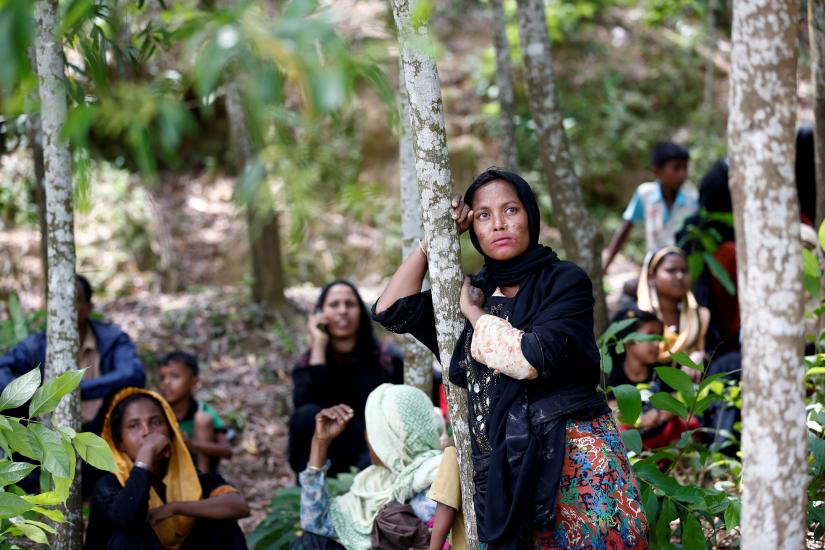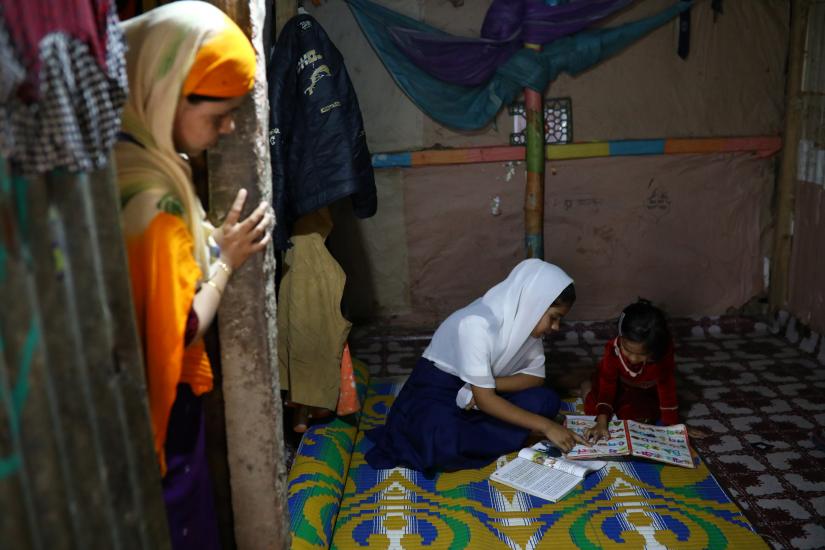 Rohingyas, driven out from Myanmar, had no idea about the existence of so many rights; though international agencies worked in Myanmar, no seminar, rally or human chains were ever held, informed Rohingya leaders.
Rohingyas, driven out from Myanmar, had no idea about the existence of so many rights; though international agencies worked in Myanmar, no seminar, rally or human chains were ever held, informed Rohingya leaders.
Rohingya leaders have said that they passed year after year in a state of ethnic restriction and never got state recognition.
These leaders now say that after leaving Myanmar in the wake of the army crackdown and taking shelter in Bangladesh, they came to know of their rights.
Therefore, unless their rights are secure, they do not want to go back to Myanmar.
Rohingyas have said that as per Burmese law of 1982, they were deprived of citizenship and made victims of persecution.
Instead of calling them Rohingyas, Myanmar authority began terming them refugees.
Every year, the Myanmar government used to take photos of Rohingya families and gave cards to them; only the ones with cards were recognised as part of a family, any new face faced torture.
Badlul Alam took shelter at Shalbon camp in Teknaf and he says: “We never got any facility from the government; in fact, we had no idea about the existence of rights.”
Those who have money can study up to SSC because, in Myanmar, Rohingyas cannot go beyond that level. Md Ekram, another Rohingya who stays in a camp with 159 relatives, observes: “My grandfather was a citizen of Myanmar and we have the card; but after the change in citizenship law, my father or uncles did not get any cards.”
Md Ekram, another Rohingya who stays in a camp with 159 relatives, observes: “My grandfather was a citizen of Myanmar and we have the card; but after the change in citizenship law, my father or uncles did not get any cards.”
“We never had any rights, and will only return once our rights are secure,” he adds.
Rohingyas faced repression in 1978, 1991, 1992, 2012, 2015, 2016 and the last time in 2017. UN and Human Rights Watch have called this ethnic cleansing.
Rohingyas say their ancestors had been residents of Arakan from the pre-colonial times and even till the end of the 20th century Rohingyas acted as MPs. However, most of them are now deceased with one living in the USA.
A young Rohingya, Yunus Arman, living in Kutupalong camps, adds: Rohingyas were once citizens of Myanmar, they had voting rights but now they have been scrapped of their privileges.”
Around 100,000 Rohingyas are languishing in prisons in Myanmar; now international organisations are beside the Rohingyas and, therefore, we are vocal in ensuring what we are entitled to, asserts the young man.
 National
National
41412 hour(s) 55 minute(s) ago ;
Morning 07:49 ; Tuesday ; Jul 08, 2025
Once Rohingyas had no concept of rights
Send
Amanur Rahman Roney
Published : 23:30, Aug 27, 2019 | Updated : 23:30, Aug 27, 2019
Published : 23:30, Aug 27, 2019 | Updated : 23:30, Aug 27, 2019
0 ...0 ...
/tf/
Topics: ExclusiveTop Stories
- KOICA donates medical supplies to BSMMU
- 5 more flights to take back British nationals to London
- Covid19: Rajarbagh, Mohammadpur worst affected
- Momen joins UN solidarity song over COVID-19 combat
- Covid-19: OIC to hold special meeting
- WFP begins food distribution in Cox’s Bazar
- WFP begins food distribution in Cox’s Bazar
- 290 return home to Australia
- Third charter flight for US citizens to return home
- Dhaka proposes to postpone D8 Summit
Unauthorized use of news, image, information, etc published by Bangla Tribune is punishable by copyright law. Appropriate legal steps will be taken by the management against any person or body that infringes those laws.
Bangla Tribune is one of the most revered online newspapers in Bangladesh, due to its reputation of neutral coverage and incisive analysis.
F R Tower, 8/C Panthapath, Shukrabad, Dhaka-1207 | Phone: 58151324; 58151326, Fax: 58151329 | Mob: 01730794527, 01730794528


